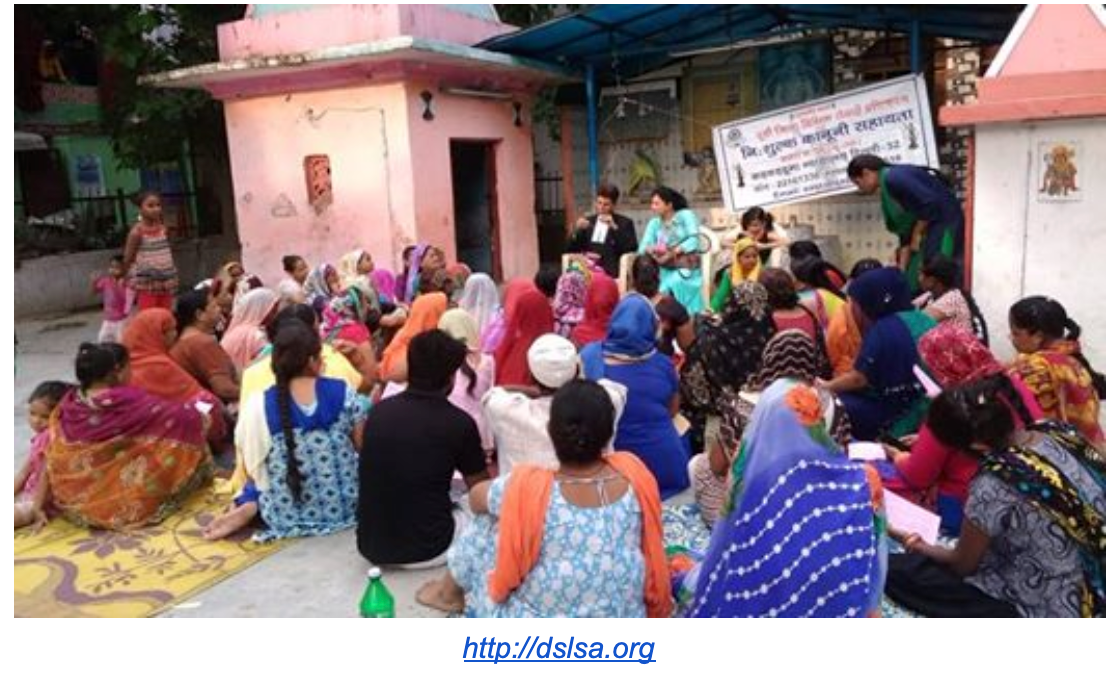Implementation Failure of Legal Aid Services in India

LEGAL AID
To ensure equal access to justice to every citizen unhindered by weak financial positions or social backwardness, the Constitution provides free legal representation to the people in need. National Legal Services Authority and its State and District branches are established by the legislature to implement this objective. They are supported by free legal clinics and NGOs to provide free legal aid to the people it in the form of advice and information. However, the successful execution of this vision has proved to be ineffective to a degree. The difficulty lies in the extent of grounds to be covered and the quality of services provided for free.
LEGAL AWARENESS
The first category includes the general lack of legal awareness in the masses. Since they are unaware of their own rights, including the right to free legal aid, they don’t seek legal aid for their issues. The Justice machinery is perceived as something beyond their reach and they are, in turn, ignorant of any provisions and schemes available to help them. Moreover, the lack of awareness exposes them to exploitation by the legal personnel appointed to assist them. There have been many instances of the lawyers charging a fee from their free legal aid clients or simply being careless while handling the cases.
INADEQUACY OF THE SYSTEM
Another failure of its outreach is that despite attempts, certain rural and marginalised communities are neglected because of a lack of awareness and absence of legal aid offices in remote areas.
The judicial system is failing to fulfil its purpose of reaching the weaker sections because of the deficient number of lawyers and judges which leaves the courts overburdened. At times, the litigation process is substituted by the Alternate Dispute Resolution techniques like mediation to reduce the burden on courts and settle civil matters congenially. But these services provided by the Lok Adalats also face the problem of settling a large number of cases in a rushed or forced manner where the victim may not get complete justice.
QUALITY OF LEGAL AID
The quality of services provided by the legal representative itself is a major issue in ensuring delivery of justice through the established machinery. Firstly, there is a lack of lawyers to take up cases because there is weak pro-bono inclination. The counsels available sometimes aren’t sincere enough in their duties towards their assigned clients due to the insufficient remuneration. At times, the remuneration provided to them is so insufficient that it doesn’t even cover their incidental expenses, which in turn make them unwilling to provide free aid. It may also be that the lawyers assigned may be too unskilled or inexperienced to handle sensitive cases. This lack of competence within the system needs to be addressed as well and every legal aid helper, from the lawyers to the law students needs to be trained better. At certain places like Rajasthan, there is a great delay in assignment of a lawyer to the applicant and the clinics and offices may be overburdened by the number of cases at hand, leaving us with inefficient and rushed delivery systems. Hence, the quality of service provided suffers.
RECENT SUCCESS
Nonetheless, all is not lost despite the appalling picture presented by the current circumstances. With times, the existing machinery of free legal aid services consisting of NALSA and its offshoots have made considerable progress and expanded their functions to undertake diverse schemes. NALSA made 2018 a great success and made headway in providing services to more than 14 Lac people, many of whom belonged to the unfortunately marginalised and disadvantaged sections such as scheduled castes, scheduled tribes, women, transgenders and the disabled. Various branches of this organisation collectively held more than 76 thousand legal awareness programmes.
The Lok Adalats held by NALSA and its State branches all over India served their purpose well by dispensing lakhs of cases. Campaigns were launched to address issues of convicts, especially women convicts, and to spread awareness about legal aid services. The Victim Compensation initiative has brought uniform justice to many women and children victims. Overall, it was a year full of goal-oriented programmes that addressed the potholes of the system by revamping the clinics and internship or traineeship programmes for the panel lawyers and law students.
The Delhi State Legal Services Authority was especially commended for their initiative of conducting a Mega Legal Services camp to educate specific communities like Unorganised Labourers, transgenders and Commercial Sex Workers of their rights. They have continued to reach a wide section of people by organising similar awareness programmes for their services and issues such as Child Labour.
SOLUTIONS
-
Spreading legal awareness, through legal literacy camps, is a must to make effective utilisation of the free services.
-
Suggested reforms include increasing the amount of compensation paid to the lawyers
-
Making free legal services to the underprivileged mandatory for the lawyers.
-
Adequate funding of the Legal aid organisations and increased remuneration for the counsels.
-
Extensive training of the legal fraternity involved especially the inexperienced freshers, paralegal training sessions and internship opportunities for the law students so they may obtain hands-on experience and ensure quality services.
-
The cumbersome bureaucratic entanglements such as elaborate rules and interviews need to be removed so as to facilitate the empanelment of passionate young lawyers into the folds when there already exists a dearth of willing legal professionals to provide quality free legal aid to the people.
By Ayushi Singh,
LLB( Hons.) 1st year,
Dr.Ram Manohar Lohiya National Law University, Lucknow.
